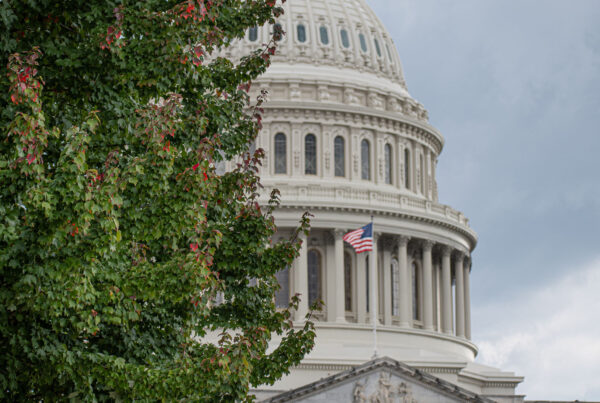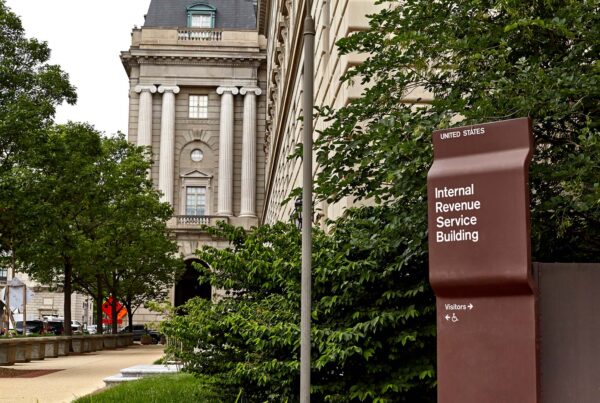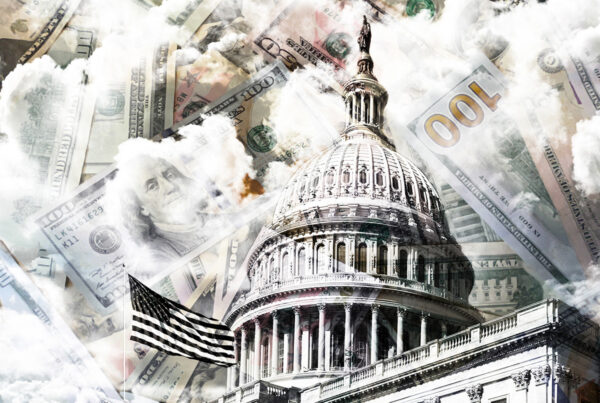This article was originally published on Forbes by Dean Zerbe under the Taxes column.
April 8, 2024 — The IRS Whistleblower Office has been the focus of a significant reform effort – seeking to make the award program for tax whistleblowers more effective and efficient. Under the leadership of the Director of the Whistleblower Office (WBO), John Hinman, and with support from IRS and Treasury senior management – the WBO has embarked upon a series of changes to improve the whistleblower program – and encourage more tax whistleblowers to come forward.
To their credit, the WBO has been vigorous in engaging with outside stakeholders about reforms. In addition, the reform efforts is coupled with a renewed focus on issuing awards – with award amounts trending upward, just under $38 million in the most recently issued report (FY 2022) (and my sense from my own clients – that number being even higher for FY 2023).
There is much new under the sun in the IRS whistleblower award program – with reforms covering (or looking to cover) a host of different areas – improved communication; heightened transparency in reporting; quicker and improved processing of whistleblower filings (better identify and prioritize high-value submissions); improved data analytics; interacting/engaging with other IRS offices – especially the exam functions; and, rewarding whistleblowers and quickly (some improvements here and possibilities for much more). In addition, the WBO has benefitted from support from senior management at the IRS in terms of staffing – good news indeed for whistleblowers.
New Form 211
While many of these important reforms are somewhat behind the curtain, a more public reform is that the IRS on March 25, 2024 announced its new revised Form 211 – the application for whistleblowers to submit information to the IRS about violations of tax laws (and apply for an award).
The IRS in its notice announcing the new Form 211 highlights that the new Form 211 allows for expanded input for data fields; addition of informational boxes with expanded instructions; updated alleged violation issues to select from – quite a few here to choose from now; and allowing for multiple whistleblowers to submit a claim jointly. Whistleblowers with claims based on public information (box 12 of the form) – should be certain to closely explain how they have provided their own independent analysis, knowledge and experience to bear on the public information (otherwise possibly being considered for a much lower award under 7623(b)(2) rather than the 15-30% of 7623(b)(1) of the statute.
The new Form 211 is certainly an improvement and will allow for whistleblowers to provide a more complete picture to the IRS of the tax violations they are seeing – and help the IRS to better ascertain and understand the key aspects of the whistleblower’s submission.
I’ve found in my work that a successful whistleblower submission will provide a straightforward narrative that explains in clear language what the facts are, the relevant tax issues – and most importantly, identifies the taxpayer(s) and related parties. Also important – as the Whistleblower Office website highlights — is for the whistleblower to include in the Form 211 submission (and explain) all documents in support of the submission as well as providing a roadmap to the IRS that identifies (and where located) and describes other key documents that the whistleblower does not have – but are in the control of the taxpayer.
What Information Does The IRS Want From Whistleblowers?
One area of reform that the WBO (and the IRS overall) is getting better at is identifying issues that the IRS has the greatest interest in hearing about from whistleblowers. For example, in a recent effort to target fraud in the area of Employee Stock Ownership Plans (ESOP) the IRS in a recent news release specifically encouraged whistleblowers to make submissions about fraud as to ESOPs. This may seem like small potatoes – but I can assure you it is not. Having the IRS openly ring the bell to call for whistleblowers to come forward on a specific matter is a sea change.
The WBO website has a useful link to the exam priorities of the IRS – including Criminal Investigation which has very broad authorities in financial crimes and, of course, tax evasion. In addition to Criminal Investigation, the IRS is especially interested in information about high-wealth individuals (over $1 million in income — $250,000 in tax owed) evading tax (setting up a global high-wealth program to target such cases). Other areas of interest include complex/tiered partnerships involving wealthy individuals; corporate tax; foreign bank accounts (undeclared). In addition, the IRS is always interested in hearing about the latest scheme or scam.
It is good news that the IRS is recognizing the value of whistleblowers and encouraging whistleblowers to come forward. As a recent TIGTA report highlights, even with the significant increase in dollars to the IRS budget, hiring remands a significant challenge to the IRS. Therefore, it is vital that the IRS encourage and engage with whistleblowers — who can markedly assist the IRS in better targeting limited audit resources and use those audit resources more efficiently.
Related to this is that one of the reforms (strengthening collaboration with other IRS shops – mentioned above) is that the WBO is more and more “at the table” at key IRS meetings – meetings that are discussing exam priorities, new schemes, etc. Having the WBO show up (or being invited to show up) is a big part of the battle of making sure that whistleblower submissions are given close consideration by the rest of the IRS.
Who Can File – Caution: Taxpayer Representative
The IRS Whistleblower Office also recently put out guidance as to who can make a whistleblower submission – with particular attention to taxpayer representatives (broadly defined) as being possibly barred due to taint. The IRS has long held that the IRS will not take action on information submitted by a whistleblower providing information as to a taxpayer – and the whistleblower is the taxpayer’s current representative to the IRS (see Chief Counsel Notice CC-2010-004 February 17, 2010). The new Form 21 in boxes 23 – 29 provides a sharp focus on possibly tainted/barred whistleblowers.
The guidance on the WBO website expands on the historic bar on a current taxpayer representative, taking a sweeping view of who is viewed as a taxpayer representative to include not just an individual who is on a Form 2848 (Power of Attorney) but any individual who is “. . . representing the taxpayer in any capacity during any administrative matter pending before the IRS.” The term is somewhat vague but the notice states: “Generally, the IRS will consider a whistleblower a representative if that person participates on behalf of the taxpayer in meetings with the IRS.”
The guidance is limited in explaining what exactly this definition encompasses. Understanding the IRS’s legal reasoning and justification for its position would assist whistleblowers to better navigate this matter. This question is particularly important to some insider whistleblowers since the IRS will basically not interact with a taxpayer’s representative who is a whistleblower – thus potentially outing the whistleblower.
Questions that are unanswered in this guidance include: if a whistleblower only provides back-office support to a taxpayer for an IDR request from the IRS – is that person a taxpayer representative? Presumably no because they were never in a meeting with the IRS – but does the back-office support constitute “any capacity”? If a whistleblower represents a taxpayer five years ago on an issue of excise taxes, but no longer is representing the taxpayer in any matter, and now wants to blow the whistle on the taxpayer’s current evasion of corporate income tax – is there still a taint – or is there a taint only if the whistleblower is still currently representing the taxpayer in the particular issue that the whistleblower intends to expose. It’s a tangled thicket.
My hope is that the IRS will provide greater guidance in this area (particularly perhaps as instructions to the Form 211 – which currently is silent on this matter) – providing examples of when there will or will not be taint. As the IRS looks to clarify, I hope they will consider closely the legal basis for drawing seemingly arbitrary lines that foreclose (or certainly discourage) the best whistleblowers from coming forward – those informed and knowledgeable insiders.
Whistleblowers that are insiders will want to be eyes open as they consider filing a Form 211.
Conclusion
It is better days ahead at the WBO and for tax whistleblowers – with the reforms in place and those in the future – putting out the “welcome” mat for whistleblowers.



